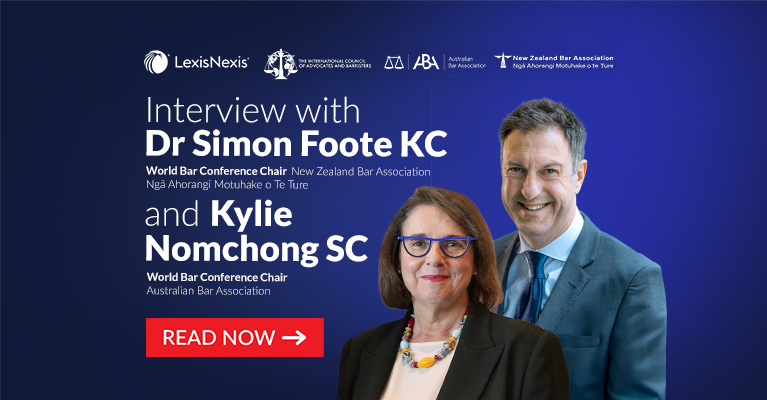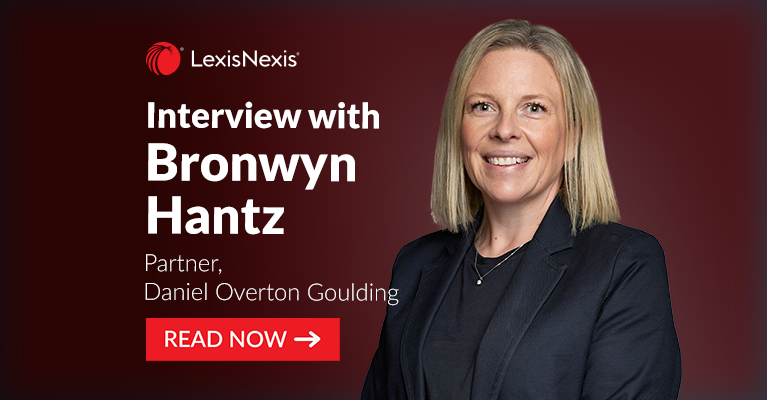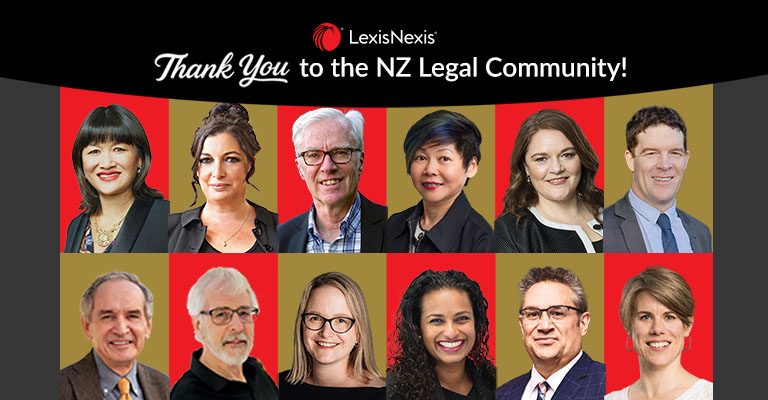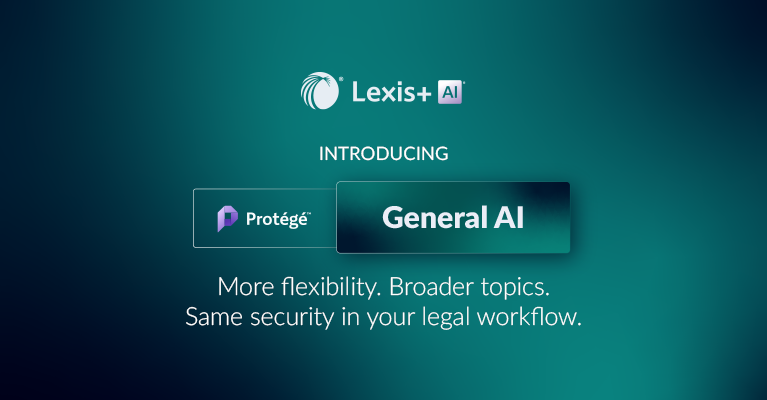Summary When executive power goes unchecked A chance for solidarity among common law jurisdictions New Zealand at the forefront Beyond the minutiae The human connection Creating environments...
Summary The empathy advantage From server to cloud Competing with larger machines The Ferrari and the potholes The enduring powers problem The constant foundation Originally published...
Summary The year legal AI became real Voices shaping the profession A year worth remembering Contributors 2025 There's a curious phenomenon about how we experience time. When our days are...
Summary The problem with platform hopping How the models differ Security without compromise Beyond legal research The speed of adoption Originally published by NZ Lawyer . Republished...
Summary Introducing Protégé General AI General AI Models Available in Protégé for New Zealand Legal Workflows Practical Use Cases for Lawyers But as AI becomes more common in legal practice...
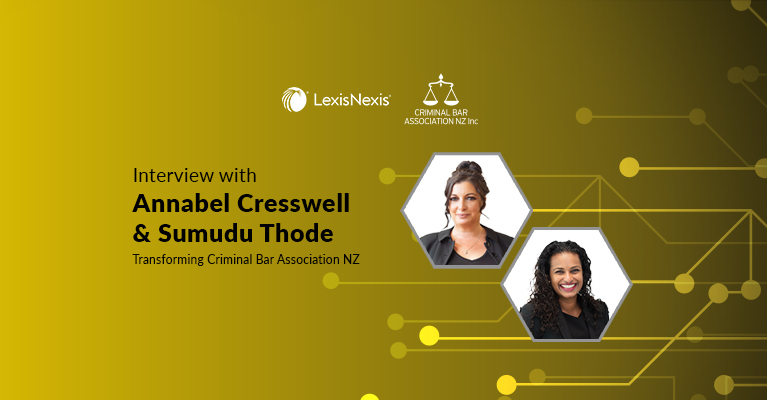
Summary
- A modern image for the criminal bar
- Courts in need of a digital overhaul
- "Time is money"
- Choosing the right legal AI solution
- "That's Just Criminal” podcast
- LexisNexis partnership
- CBANZ membership benefits
Originally published by NZ Lawyer. Republished with permission.
In a profession built on tradition and where the human stakes are very high, even small changes can echo loudly.
Annabel Cresswell and Sumudu Thode believe the Criminal Bar Association New Zealand (CBANZ) — and the criminal justice system it serves — can’t afford to stand still any longer. They have ambitious plans to take the organisation into a new era.
From rebuilding the website to launching podcasts and experimenting cautiously with artificial intelligence, the pair are leading a charge to modernise CBANZ’s operations and image. Their vision goes beyond surface-level fixes to making the association more appealing to younger lawyers, helping streamline the daily challenges of criminal practice, and tackling the glaring technology gaps that continue to slow New Zealand's courts.
Working with key partners like LexisNexis, they are determined to ensure that CBANZ is a beacon of innovation and advocacy.
A modern image for the criminal bar
"I would like to bring us into the next stage of modernisation, by being ahead of the game on things like podcasts, AI technology and social media," Cresswell, incoming association president and barrister at Pohutukawa Chambers, told New Zealand Lawyer.
The website is an initial target because it is “dated and dull,” she said. A new logo will be coming online within weeks with a site-wide overhaul a little further down the track.
CBANZ tackles issues that arise for members including court-related problems, access to prisoners, legal aid matters and more. It also looks at any legislative or policy changes that are coming up and engages in related consultation with key industry bodies. While criminal law practice is steeped in tradition, Cresswell and Thode are keenly aware of the need to remain relevant and appealing to a younger audience.
"One of the things that we've both been really keen to do is to reach the junior lawyers," said Thode, CBANZ vice president and principal of Thode Utting & Co. Barristers & Solicitors.
"There are a lot of junior lawyers coming through, really capable junior lawyers who are passionate about law, but we need to appeal to them, capture them and keep them doing criminal law.”
Courts in need of a digital overhaul
While CBANZ pushes forward with modernisation efforts, New Zealand's court system remains behind the technological curve.
"The courts are not adopting technology as fast as they should. There is not a trial I have done where there hasn't been a technology challenge," said Cresswell. She points to the stark contrast between reality and expectations shaped by overseas media. "The public and parties who come into our courts in New Zealand and think there will be big screens and seamless connection with digital devices with documents displayed, but unfortunately, the facilities haven’t quite gotten there yet.”
These technology gaps create significant challenges. Thode’s personal experience speaks to some of the problems at hand.
"Some firms use Apple software and devices, so trying to use a Mac computer or tablet with the limited operating system options at the judicial facilities creates inefficiencies. Even being able to use Bluetooth or Airdrop instead of a USB would be a big step.”
There is a big disconnect between the modern, sophisticated media image of criminal court proceedings and the reality in New Zealand.
"For example, if you have CCTV footage that you want to play, putting it on a big screen that everybody in the court can see, including witnesses appearing remotely – it’s quite a simple process, but not in a courtroom. It is nearly always a challenge" lamented Thode.
"Time is money"
Both identify time wastage as a key professional challenge, directly impacting firm profitability.
"Time is money. Time wasting is money wasting," said Thode. "For me, there's a lot of time used chasing what I think is really basic information that we should have access to, or just a lot of waiting around for other parties so I can do my job for my clients."
The problems cascade throughout the criminal justice system. Thode points to delays in receiving pre-sentence reports, restorative justice memorandums, and AOD [Alcohol and Other Drug] reports as significant bottlenecks. Legal aid funding approvals add another layer of delay.
"There's a lot of idle time when I think, potentially, that's inefficiency. If everybody plays their part, then it makes it easier for us to play ours," Thode explained. Cresswell noted that financial administration represents another considerable time sink.
Choosing the right legal AI solution
While courts are facing challenges with adopting technology, CBANZ leadership recognises the potential of legal AI tools to improve efficiency. However, their professional caution highlights the importance of selecting the right legal technology solution.
"We've tried to get current AI tools to write closings and openings, to see what it produces," said Cresswell. "I think eventually they will be able to draft closings and openings because AI has the ability to learn your style and approach. But closing addresses are so nuanced and case and barrister specific, that I don’t think any AI tool in its current form can draft a closing that wouldn’t need to be rewritten significantly.”
She added that current AI tools "keep using overseas examples,” limiting their usefulness in the New Zealand context, hence they are excited to trial the Lexis+ AI New Zealand platform that promises to deliver on their requirements when it launches this July.
Despite the limitations, Cresswell and many others are experimenting with AI applications: "We've started to use the AI tool on Adobe, which can summarise huge amounts of intercepts rather than us having to go through them – like clients talking to each other or clients who have their phone calls recorded from prison."
But the stakes around accuracy are particularly high in criminal law. "The difficulty is in our job, if we make a mistake, the consequences for our clients are really severe," said Thode. "It's great to use technology to be more efficient and keep up with the times, but we do have to be really careful. We can’t say to a judge ‘oh, I missed that because AI didn’t give it to me – sorry, my bad’.”
Another concern for legal practitioners is citation accuracy. "There was an example where cases were referred to that didn't exist," Thode explained. "Something like that [in court] would be our worst nightmare.”
Legal practitioners need solutions specifically designed for their requirements. LexisNexis is addressing this need with Lexis+ AI, a platform developed specifically for the New Zealand legal profession. This solution combines powerful AI capabilities with authoritative legal content to ensure accuracy and reliability.
According to LexisNexis research, nearly all legal executives (90%) expect their investment in generative AI technologies to increase over the next five years. This adoption comes with heightened expectations for solutions that can meet the specific demands of legal practice.
For criminal barristers and lawyers like Cresswell and Thode, key considerations include privacy and security protections, citation validation to prevent "hallucinations" of non-existent cases, and grounding in authoritative legal content. The platform's ability to save lawyers up to 11 hours per week* makes it particularly valuable for time-pressed criminal practitioners.
Unlike general-purpose AI tools, Lexis+ AI specialises in legal tasks such as case summarisation, insightful recommendations, and advanced data visualisations—directly addressing the challenges identified by CBANZ leadership.
"That's Just Criminal” podcast
Among CBANZ’s modernisation efforts is a podcast called "That's Just Criminal", which represents exactly the kind of innovation Cresswell and Thode want to champion.
"We were saying, instead of being the last to do things, let's try and be the first to do things," said Cresswell.
Produced in partnership with LexisNexis and designed to be the length of the congested drive between Manukau and Auckland, the podcast aims to be accessible rather than academic. "We wanted the information that we wanted to get out to be more bite-sized, more easy listening, and not necessarily just for lawyers," said Thode.
The approach has resonated with their audience, particularly law students and junior lawyers. Thode was recognised by listeners at university career days and the podcast has also been noticed by the bench.
"We've both appeared in front of judges who have referred to it and also taken a gentle jab at us about it," laughed Cresswell.
The podcast has become an unexpected recruitment tool that is breaking down barriers and lifting the mystique around lawyering.
"One of the problems that we have [is] a lot of law students don't know practicing lawyers, or don't actually know what the reality of being a lawyer is like," said Thode. The feedback is that students love to hear "an honest opinion of what day-to-day life is like and the issues that come up [for a criminal lawyer]."
LexisNexis partnership
As part of their modernisation strategy, CBANZ has also partnered with LexisNexis to enhance members' access to legal resources and technology solutions.
The partnership includes LexisNexis sponsoring the CBANZ's conference, giving members access to CPD seminars, and providing research tools that address some of the time challenges identified by Cresswell and Thode.
"Research absorbs a lot of time, and the juniors handle them well" says Cresswell.
Thode suggests that technology could help streamline routine documentation: "Even an easier way to do a reporting letter or letters of instructions to clients would help."
CBANZ membership benefits
CBANZ is actively recruiting new members with an attractive offer. "You get a complimentary membership for the first year as a lawyer," said Thode. "That gives you access to our conference, which LexisNexis are the main partner this year. You get member pricing for the conference. It's a great weekend of listening to legal experts but also mingling with lawyers up and down the country."
The networking opportunities are a big part of the attraction in what can be a demanding job.
“Basically [we want to create] that support and camaraderie,” said Cresswell.
Other practical support comes in terms of consultation and work on behalf of members with other organisations such as prisons, legal aid or the Ministry of Justice behind the scenes, trying to make the day-to-day lives of criminal lawyers a little bit better.
Whether through podcasts, partnerships, or quiet advocacy behind the scenes, Cresswell and Thode are showing that real change begins with a shift in perspective.
Learn more about the Criminal Bar Association (CBANZ)
To discover LexisNexis AI-powered solutions and how they help legal professionals save time, submit the form below:

